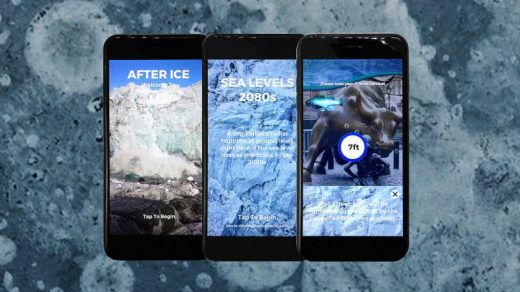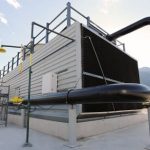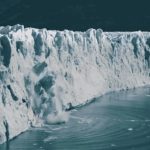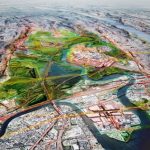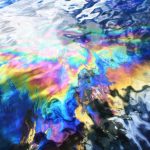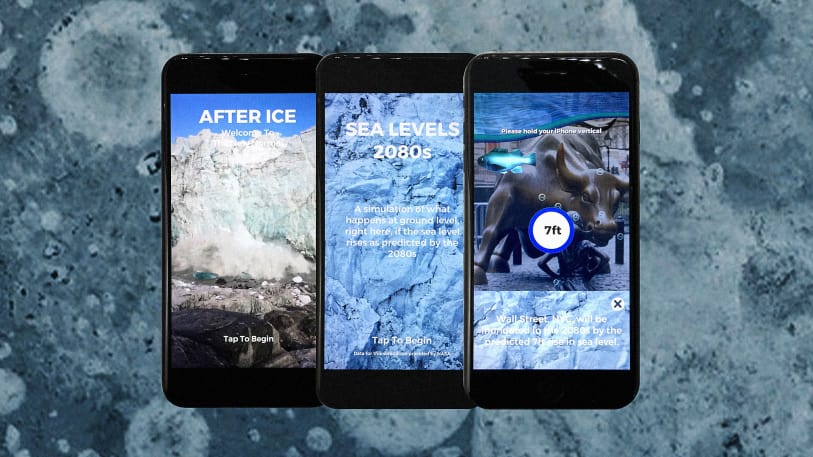This App Shows You What Life Will Be Like When The World’s Ice Melts
When our persistent carbon output melts all the ice on Earth, the seas will rise over 230 feet and cover the whole Atlantic seaboard, and make islands out of the hills around San Francisco. The Caribbean will disappear.
This is daunting to contemplate, but it’s far off, and, from where we sit, it remains theoretical. But a new app, created by the New York-based artist Justin Guariglia, brings this eventuality firmly into the present day. Called After Ice, the app detects your location and allows you to visualize the effects of climate change through augmented reality by overlaying an image of yourself in your current environment with water-level projections.
When I open After Ice in New York and hold my phone up to my face, I see a gentle wave of water rolling somewhere right over my head. Occasionally, a fish swims past. The app tells me that at 76% of total melt, sea level will be at 176 feet above current levels in my neighborhood. Even though scientists estimate that the 5 million cubic miles of ice on Earth will likely take 5,000 years to melt, it’s been happening, slowly, for years. The app takes the same approach to sea level rise predictions for the year 2080–when many young people will still be alive. Though the app works everywhere in the world, the last demonstration shows the Wall Street Bull in 2080, so even those whose locations would be above sea level in that year could get a sense of the effects of the projected 7-foot rise.
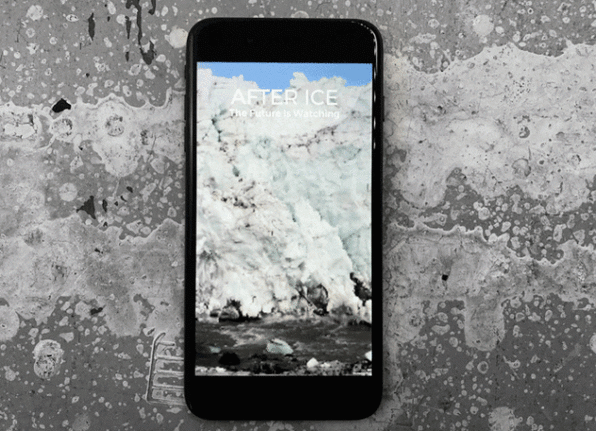
In 2015, Guariglia began joining NASA scientists on the polar survey flights conducted as part of Operation IceBridge, which images the region to better understand how it is affected by the global climate system. As a trans-disciplinary artist who frequently collaborates with scientists and philosophers to inform his work, Guariglia “went out there to be able to get access to this thing that I knew nothing about, which is the ice sheet,” he tells Fast Company. Through his work, Guariglia explores existential issues, and when looking at climate change, he ran up against the fact that “as humans, we are not biologically evolved to understand and compute climate change and sea level rise. We know how to feed ourselves and clothe ourselves, but this great ecological crisis is outside our scope of comprehension.”
With After Ice, Guariglia wanted to turn this vast, abstract existential threat into something that could be felt viscerally, in the here and now. “We’re so disconnected from this concept, but when you experience it in augmented reality through an app, or even just walk down to the waterfront and recognize that that water comes from ice melting in Greenland, it becomes real,” Guariglia says. “And when that’s felt, when something has that sort of impact on someone, they’re more likely to do something about it.”
After you scroll through all the simulations in the app, you reach a screen that reads “Take Action.” That page links through to a site that contains a poster that can be printed out and wheat-pasted on posts and walls to signify where water levels will rise to in 2080. On Earth Day, April 22, Guariglia will be mobilizing a crew of volunteers to travel through New York City, putting up the posters, which read: “Warning! Imminent Flood Zone.”
“Nobody registers what kind of effect sea level rise will have,” Guariglia says. “I discovered all of this by working with people at NASA, and I just thought: The science is so contained. It’s got to come out of the lab. As an artist right now, it’s so important to be politically and socially engaged, so the app is an extension of those two ideas.”
(40)

